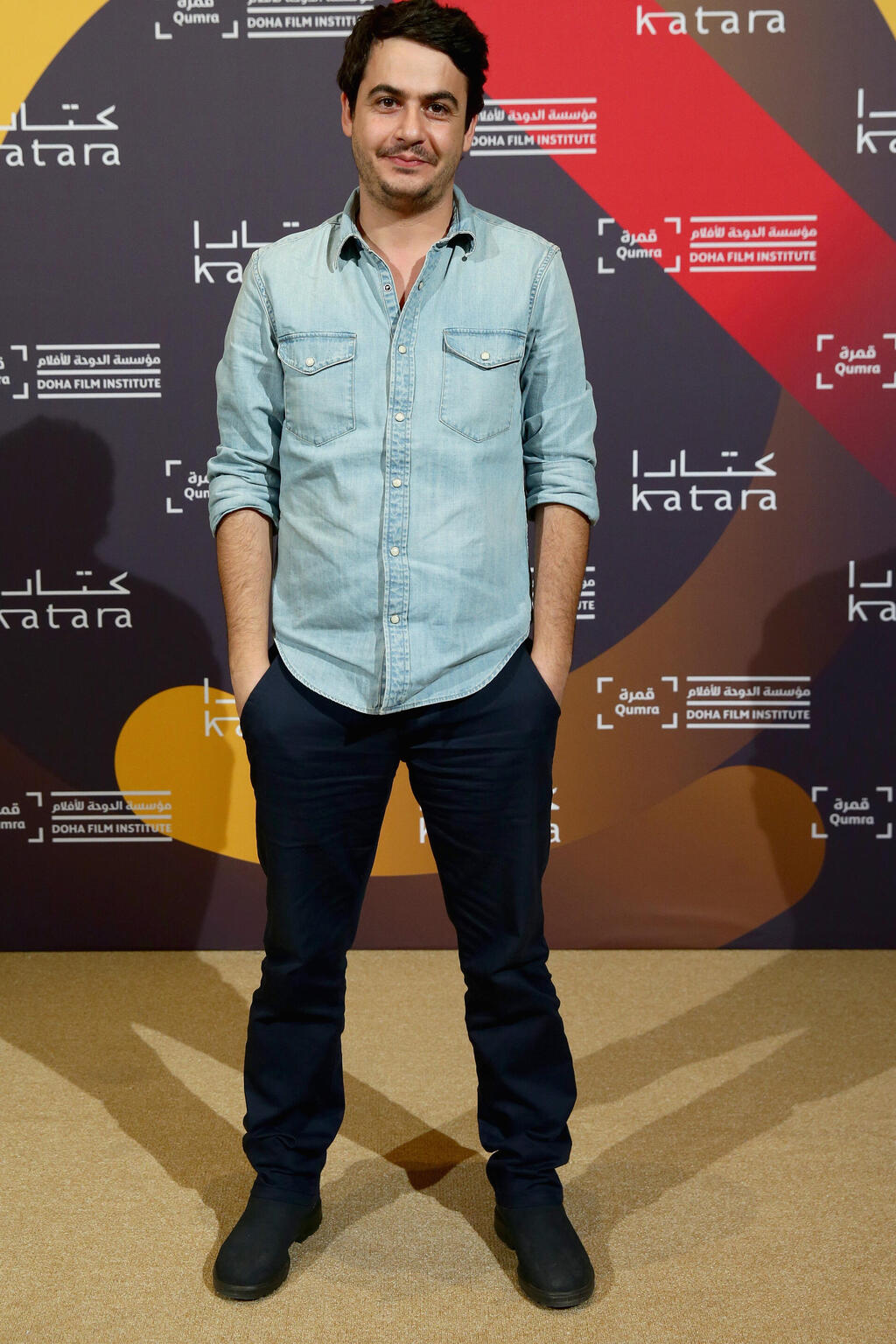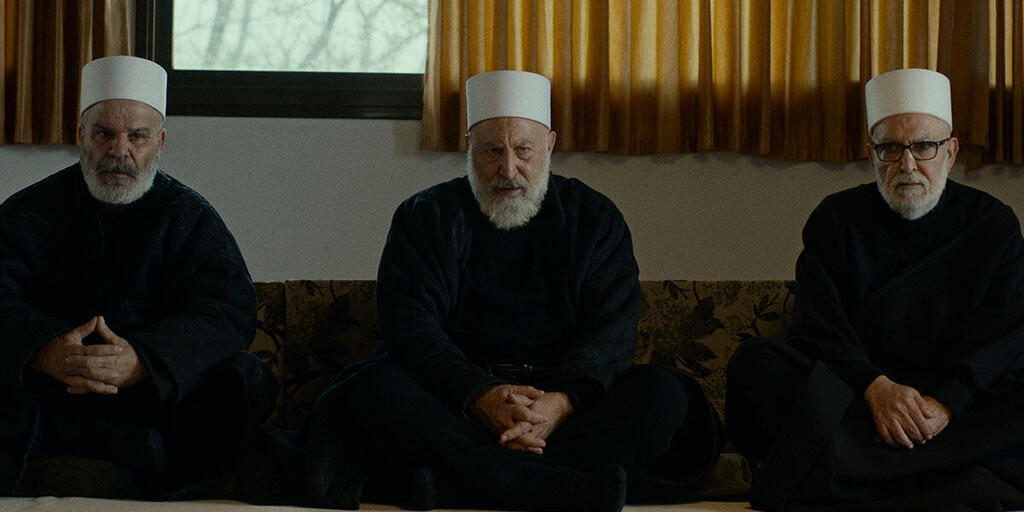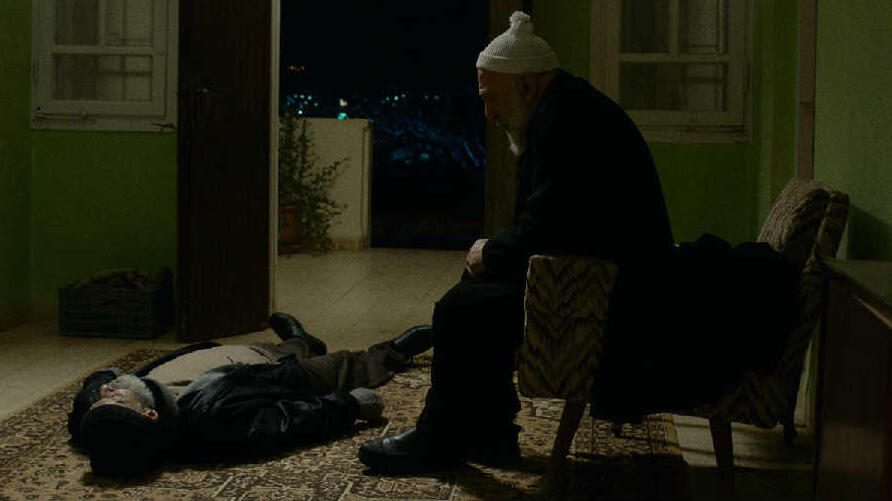A Druze filmmaker from the Golan Heights has recently declined an Israeli citizenship despite using state funds to finance a film criticizing Israel's "occupation" of the Palestinians.
Ehab Tarabieh's new film "The Taste of Apples is Red," recently premiered at Marrakech International Film Festival, and was produced with the aid of Israeli financing. Tarabieh, however, says he identifies as Syrian and rejects any affiliation with the State of Israel.
Tarabieh is strongly opposed to the Israeli policy in the West Bank, and has cooperated with Be'Tselem, an Israeli non-profit that documents human rights violations by Israeli security forces in the Palestinian territories.
The 41-year-old director, born in the Druze town of Majdal-Shams in northern Israel, has been trying to get the necessary financing to produce the movie, but to no avail. Left without any options, he says he turned to the Israeli Film Fund.
"Just because the movie is Israel-funded changes nothing regarding my identity and movie's context," he tells Ynet. "I tried to make a non-Israeli movie and couldn't, and yet, the movie's story and message says it all."
You received money from a national entity you oppose to make your art
"It's not like I took the money from the prime minister. I took it from a film fund that supported the movie based on its script. I don't represent Israel in this movie. I know some will see things differently and that's fine. As far as I'm concerned, I want a movie that isn't defined nationally, just as it says 'undefined' under nationality in my ID card. I'll never censor myself."
Despite Tarabieh's heavy criticism of Israel, the plot of The Taste of Apples is Red speaks of an identity crisis the Druze community was going through during the Syrian civil war. The movie revolves around Shiekh Qaml, the spiritual leader of a Druze village whose inhabitants are supportive of Syria's President Bashar al-Assad. When his brother escapes Syria and asks his brother for refuge, it creates a row in which the village chief gets involved.
The movie stars Suhil Haddad, Maisa abd-Alhadi, Shadan Qanburrah and Tariq Kubatti, who died just before the film came out and who the film is dedicated to.
Trailer for The Taste of Apples is Red
"I know it well from childhood and I wanted to speak both of the Syrian civil war and the Israeli occupation of the Golan Heights. I needed to immerse myself in all aspects of Syrian life from afar in order to speak of it in the movie. To make all those moving pieces work together, I chose reincarnation."
Do you believe in it?
"I'm not religious but I respect the beliefs. I've a lot of crazy stories regarding reincarnation so I have no idea whether I believe in it. I don't know I'd react if one of my kids asked me about it, but using supernatural elements present in all religions is great. I love cinema that has magical realism. It doesn't matter if I believe in it as long as the characters do."
As reincarnation knows no geographical boundaries, a kid from rebel village can reappear in the pro-Assad side of the border. Tarabieh masterfully uses that element to pose the inter-Syrian dilemma as the movie's focal point.
"The Druze in the Golan Heights aren't conservative," Tarabieh says. "The things that Sheikh Qaml says are well known. Normally, religious people are portrayed as one-dimensional and rigid, but I know there are a lot of aspects to being religious. My father was very religious and a good person. Same with my grandfather. They didn't shove their beliefs into our lives. Sheikh Qaml is the protagonist and carries people's sins on his shoulders."
Tarabieh left Majdal-Shams for Damascus after high school for music studies. After a stint in the Czech Republic he came back to Israel, and enrolled in The Sam Spiegel Film and Television School in Jerusalem.
What are your memories of Damascus?
"A city that never sleeps and has everything. Then there's the political aspect and the leader is a tyrant so you can't say whatever you want. It comes across in all aspects of life."
How much of the movie's political drama can be seen in real life?
"Golan Heights is split between pro and anti-Assad people, and the elders who say nothing. The civil war caused a rift in Druze society, so it's real. Minorities look for a patron saint to protect them and I try to reflect that struggle in the movie. It's a very complex geopolitical situation."
Maybe theoretical arguments about Assad is a luxury afforded to the Druze that are in Israel?
"I disagree. Those under threat are our brothers, and we'll do everything we can for them, so some express support for Assad to protect their families across the border. Just because you're far away doesn't mean they won't go after your family. That's my interpretation of what's going on.
"Still, those on the Israeli side are under Israel's occupation. While there are no fences and barbwires like the West Bank, you're still discouraged from identifying as Syrian. I don't accept it, even if what's going on in my country is horrible."
And yet, despite your objection to Assad's regime, you identify as Syrian and deny the Israeli part of you
"I don't identify as Syrian. I am Syrian. All Druze in the Golan Heights are. It's a historical fact, even if you support Israel. I know it seems strange, but I'm Syrian because that's how I was born, regardless of regime. I'm not Israeli and never will be. I have no Israeli citizenship. I view Israel as an occupying entity. Before 1967, the Golan Heights had 135 Syrian villages, all of which were torn apart and residents forced into refugee camps. I can't ignore that."
The Taste of Apples is Red is about to come out in Israeli theaters, but since it was funded by Israel, it's unlikely to screen in various parts of the Arab world. "At the end of the day, when I watch a movie I often forget who the director is, but I know it's classified as an Israeli film, and won't be shown in Arab theaters. That's a shame, but at least it was shown in Morocco after 10 years of hard work producing it."
Financing aside, it seems Israelis are more open to creations that undermine conventions, more so than Arab countries where movies like these will be boycotted immediately
"Welcome to the Middle East, but all it means is that Israeli leadership is more sophisticated in managing its occupation of another people. If Israel is a democratic country, then it needs to be compared to other democratic countries, not autocratic ones. What we see in the Arab world is the result of European colonization that spanned centuries."
Tarabieh is also the manager of Be'Tselem's video department. It documents the Palestinian reality in the West Bank, including IDF raids. "We hand out cameras to Palestinian families in conflict zones so they'll document what goes on daily with IDF raids and military inspections.
"We archive, research and hand out some of the material to broadcasting entities with a wider reach. Audio-visual archiving is very important. You need to expose reality from the point of view of the oppressed. We hope it will end the occupation and preserve the memory of the atrocities. What I do with Be'Tselem is the second most important thing to me after my family. Even more so now when things are so bad, and likely to get worse. I'm not very optimistic."






